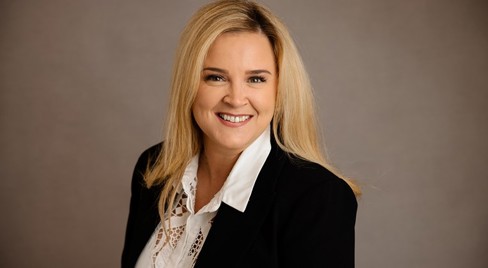When it comes to R&D tax credits, many businesses think they have to choose between doing their own claim, their trusted accountant or a specialist R&D advisor. The truth? The best claims come from collaboration.
Of course, no one knows your projects better than you. However, your accountant knows your finances inside out, while an R&D advisor understands the technical intricacies of qualifying activities and HMRC's evolving requirements. Rather than competing services, they're pieces of a puzzle that can unlock more value for you when fitted together.
The Accountant's Role
Your accountant is already your trusted financial partner, handling the essential groundwork that makes R&D claims possible in the first place. They keep your books in order, prepare your tax returns, and ensure you're meeting all your compliance obligations.
This foundation is crucial because R&D claims must integrate seamlessly with your overall tax position. The actual claim is made using the Corporation Tax Return (CT600), alongside other forms. Your accountant’s intimate knowledge of your business is crucial in this preparation.
The R&D Advisor's Role
While accountants excel at financial strategy, R&D advisors bring the deep technical knowledge that transforms potential into reality. HMRC's guidelines on what constitutes qualifying R&D are detailed and nuanced, and specialists stay current with the latest guidance, understand sector-specific applications, and can identify activities that less experienced practitioners might overlook or incorrectly assess.
The strongest claims aren't just technically correct; they're compellingly presented. R&D advisors know what evidence HMRC expects, how to structure technical reports that resonate with reviewers, and how to present your innovation story in terms that align with tax legislation.
Importantly, R&D advisors ensure you're staying compliant with all requirements, like the Additional Information Form and the Advance Notification Form. They can navigate the complexities of subcontracted work and know how to handle situations where your business might qualify under multiple schemes for different activities.
Collaboration Creates Value
The magic happens when these two skillsets work in harmony rather than isolation. When accountants and R&D advisors collaborate, they can prepare a robust claim with great efficiency.
Rather than duplicating efforts or working at cross-purposes, collaborative teams divide responsibilities strategically, saving you time and reducing the administrative burden on your business.
Collaboration in Action: A Step-by-Step Framework
Effective partnerships begin with the decision to make a R&D tax credit claim. This usually comes from the client; maybe an advisor has reached out to you, or you’ve stumbled across an article on eligibility and realised you may have qualifying activity. You may have even made a claim before and are now deciding to get some support the next time round.
Next, you’ll select an advisor, sometimes on the recommendation of your accountant. If you’ve gone for a full-service advisor, they will conduct a thorough technical review, interviewing your team, examining project documentation, and assessing activities against HMRC's qualification criteria. They identify what qualifies, what doesn't, and the strength of each potential claim. This technical assessment provides the foundation for everything that follows.
The joint claim preparation phase is where collaboration becomes crucial. Many R&D tax advisors will handle the entirety of the claim, writing up a technical narrative of your projects and the expenditure analysis. However, the foundation of the costing analysis comes from your accountant.
For claimants using an online R&D tax portal, like Tax Cloud, the trio of claimant, accountant and advisor all have an input on your R&D tax claim. You enter your project details and technical narrative, your accountant enters your expenditure, and your R&D advisor checks the whole thing and suggests edits where necessary.
Once the claim has been prepared, your accountant provides your tax return to the advisor for them to add in the R&D tax credit, and it gets sent to HMRC, along with all other relevant documentation prepared by the advisor.
R&D advisors share their findings and maintain open communication with accountants to ensure efficient submission to HMRC, while accountants provide the financial context for the claim to be submitted. With this synergy, you'll have peace of mind knowing that both the numbers and the technical arguments supporting your claim are correct. This confidence allows you to reinvest your relief into further innovation without worrying about compliance issues down the line.
Building Your Dream Team
Signs of strong partnership potential include professionals who speak positively about collaborating with others in their field and who understand their own expertise boundaries.
You’ll hopefully already have your accountant vetted, but choosing your R&D advisor is a consideration almost as important.
Not all specialists are born equal; no matter how they operate, through a full consultancy approach or through guidance and templates, you should always run through the following questions:
- Have they been operating for enough time to be a credible advisor?
- Do they have positive reviews and case studies?
- Does their team include tax, finance and technical writing professionals over salespeople?
- What are their terms of service? Do they still charge if your claim is rejected?
- Do they handle any potential compliance checks? To what level? Is there an additional fee for this support?
- Are they held accountable by a chartered or accredited organisation (e.g., ACCA, CIMA, ICAEW…)? Do they follow anti-money laundering procedures?
- Are they a recognised and registered advisor with HMRC?
The Collaborative Advantage
Our clients understand that accountants and R&D advisors bring different but equally valuable expertise to the table, and they're willing to invest in both to improve their R&D tax credit claim.
Start by speaking to your accountant about potential R&D opportunities in your recent projects, then connect with an R&D advisor who has a track record of successful partnerships.
At Tax Cloud, we are trusted by accountants up and down the country; our online R&D tax credit portal offers clients the opportunity to add their own claim details with the assurance of having the claim reviewed by our R&D tax experts.
Tax Cloud even allows your accountant to submit information for you. Accountants are able to input costing details and have a direct line to our experts for advice.
Get in touch with our team to kickstart your collaboration and get the full entitlement you deserve.







